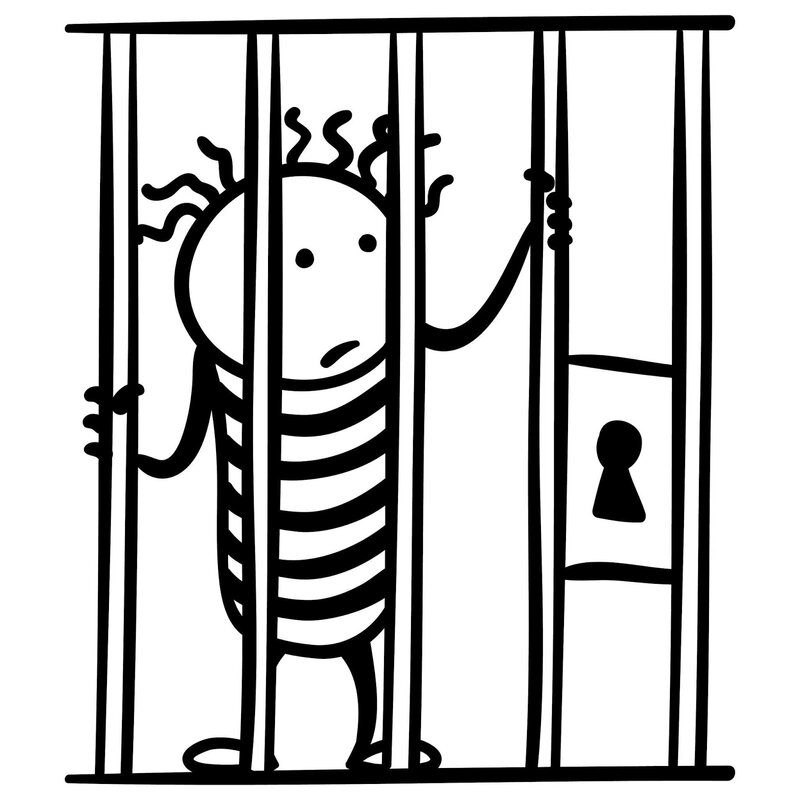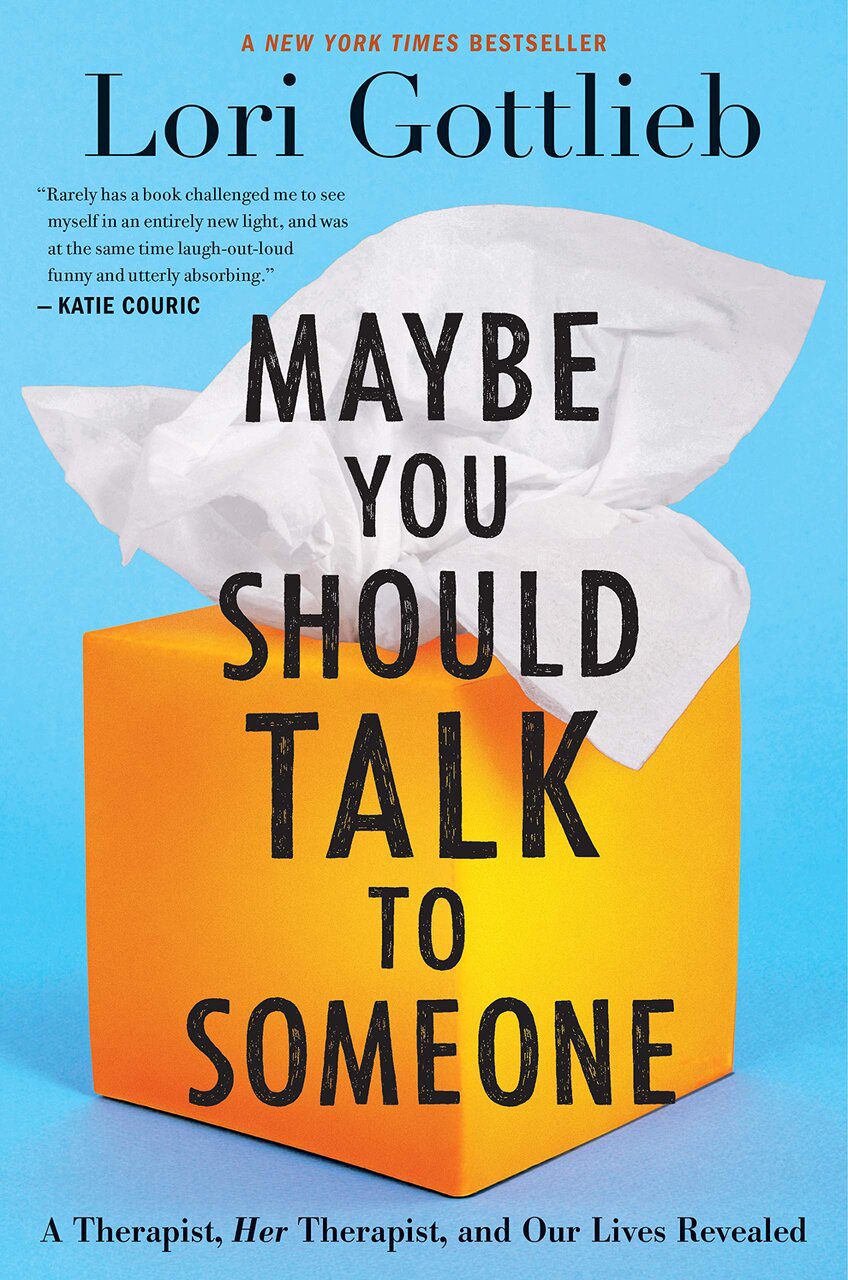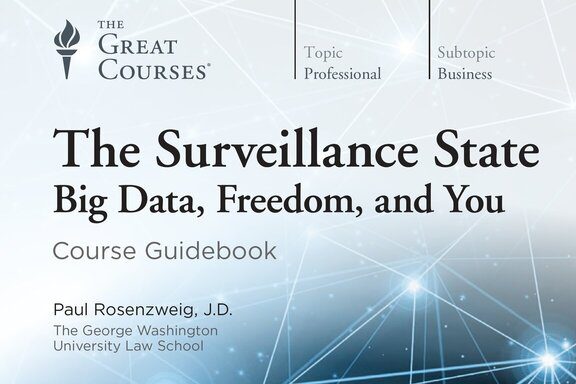What makes therapy challenging is that it requires people to see themselves in ways they normally choose not to. A therapist will hold up the mirror in the most compassionate way possible, but it’s up to the patient to take a good look at that reflection, to stare back at it and say, “Oh, isn’t that interesting! Now what?” instead of turning away.
Print | Kindle(eBook) | Audiobook
Maybe You Should Talk to Someone is a witty and thought-provoking memoir by Lori Gottlieb, where she takes the reader on a journey of being a therapist, her patients, and her therapy session with another therapist. The book reads like a frequently asked question on psychotherapy, the therapy process, vulnerabilities, suffering, pain, childhood trauma, shame, and all the things we deal with as humans.
Lori Gottlieb is an American writer and psychotherapist, who writes the weekly “Dear Therapist” advice column for The Atlantic. ABC Studios is developing a television series based on the book with Eva Longoria.
“People will do anything, no matter how absurd, to avoid facing their own souls.” – Carl Jung
Lori shares some great insights through her therapy sessions with her clients and her therapy session with her own therapist. She delivers the lessons, anecdotes, rants, jokes, and insights through the following characters:
- Lori Gottlieb: therapist and a patient
- John is a self-absorbed Hollywood producer
- Julie is a newlywed around the age of thirty, diagnosed with a terminal illness
- Rita is a senior citizen who wants to end her life on her birthday
- Charlotte is a twenty-year-old woman struggling with damaging relationships and alcoholism
- Wendell is Lori Gottlieb’s psychotherapist
“The nature of life is change and the nature of people is to resist change.”
Therapy is about understanding the self that you are. But part of getting to know yourself is to unknow yourself—to let go of the limiting stories you’ve told yourself about who you are so that you aren’t trapped by them, so you can live your life and not the story you’ve been telling yourself about your life.
Here are my favorite takeaways from reading, Maybe You Should Talk to Someone: by Lori Gottlieb:
“Somewhere in the tangle of the subject’s burden and the subject’s desire is your story.”—Alex Tizon
Therapists don’t perform personality transplants; they just help to take the sharp edges off.
- A patient may become less reactive or critical, more open and able to let people in. In other words, therapy is about understanding the self that you are. But part of getting to know yourself is to unknow yourself—to let go of the limiting stories you’ve told yourself about who you are so that you aren’t trapped by them, so you can live your life and not the story you’ve been telling yourself about your life
- People want to be understood and to understand, but for most of us, our biggest problem is that we don’t know what our problem is. We keep stepping in the same puddle. Why do I do the very thing that will guarantee my own unhappiness over and over again?
- Therapists use three sources of information when working with patients: What the patients say, what they do, and how we feel while we’re sitting with them. Sometimes a patient will basically be wearing a sign around her neck saying I REMIND YOU OF YOUR MOTHER! But as a supervisor drilled into us during training, “What you feel on the receiving end of an encounter with a patient is real—use it.” Our experiences with this person are important because we’re probably feeling something pretty similar to what everyone else in this patient’s life feels.
- Implicit in the therapeutic contract is the patient’s willingness to tolerate discomfort because some discomfort is unavoidable for the process to be effective.
Theme of Exclusion
It’s the fear that we’ll be left out, ignored, shunned, and end up unlovable and alone.
- Carl Jung coined the term collective unconscious to refer to the part of the mind that holds ancestral memory, or experience that is common to all humankind. Whereas Freud interpreted dreams on the object level, meaning how the content of the dream related to the dreamer in real life (the cast of characters, the specific situations), in Jungian psychology, dreams are interpreted on the subject level, meaning how they relate to common themes in our collective unconscious.
So many of our destructive behaviors take root in an emotional void, an emptiness that calls out for something to fill it.
Dreams
- I’ve noticed that dreams can be a precursor to self-confession—a kind of pre-confession. Something buried is brought closer to the surface, but not in its entirety. A patient dreams that she’s lying in bed hugging her roommate; initially she thinks it’s about their strong friendship but later she realizes she’s attracted to women. A man has a recurring dream that he’s been caught speeding on the freeway; a year into this dream, he begins to consider that his decades of cheating on his taxes—of positioning himself above the rules—might catch up with him.
“Though we travel the world over to find the beautiful, we must carry it with us, or we find it not.”—Ralph Waldo Emerson
Change
- Whenever one person in a family system starts to make changes, even if the changes are healthy and positive, it’s not unusual for other members in this system to do everything they can to maintain the status quo and bring things back to homeostasis. If an addict stops drinking, for instance, family members often unconsciously sabotage that person’s recovery, because in order to regain homeostasis in the system, somebody has to fill the role of the troubled person. And who wants that role?
The stages of change are such that you don’t drop all of your defenses at the same time. Instead, you release them in layers, moving closer and closer to the tender core: your sadness, your shame.
- Sometimes people even resist positive changes in their friends: Why are you going to the gym so much? Why can’t you stay out late—you don’t need more sleep! Why are you working so hard for that promotion? You’re no fun anymore!
Peace does not mean to be in a place where there is no noise, trouble, or hard work. It means to be in the midst of those things and still be calm in your heart. – Thich Nhat Hanh
On Anger
- Anger is the go-to feeling for most people because it’s outward-directed—angrily blaming others can feel deliciously sanctimonious. But often it’s only the tip of the iceberg, and if you look beneath the surface, you’ll glimpse submerged feelings you either weren’t aware of or didn’t want to show: fear, helplessness, envy, loneliness, insecurity. And if you can tolerate these deeper feelings long enough to understand them and listen to what they’re telling you, you’ll not only manage your anger in more productive ways, you also won’t be so angry all the time.
Freedom involves responsibility, and there’s a part of most of us that finds responsibility frightening.
You are your own jailer.
Lori shares the story of a famous cartoon: It’s of a prisoner, shaking the bars, desperately trying to get out—but to his right and left, it’s open, no bars. He pauses, allowing the image to sink in.

- All the prisoner has to do is walk around. But still, he frantically shakes the bars. That’s most of us. We feel completely stuck, trapped in our emotional cells, but there’s a way out—as long as we’re willing to see it.
- He lets that last part linger between us. As long as we’re willing to see it. He gestures to an imaginary prison cell with his hand, inviting me to see it.
- Most of us come to therapy feeling trapped—imprisoned by our thoughts, behaviors, marriages, jobs, fears, or past. Sometimes we imprison ourselves with a narrative of self-punishment. If we have a choice between believing one of two things, both of which we have evidence for—I’m unlovable, I’m lovable—often we choose the one that makes us feel bad. Why do we keep our radios tuned to the same static-ridden stations (the everyone’s-life-is-better-than-mine station, the I-can’t-trust-people station, the nothing-works-out-for-me station) instead of moving the dial up or down? Change the station. Walk around the bars. Who’s stopping us but ourselves?
There is a way out—as long as we’re willing to see it.
Trusting Alliances
- Therapists are always weighing the balance between forming a trusting alliance and getting to the real work so the patient doesn’t have to continue suffering. From the outset, we move both slowly and quickly, slowing the content down, speeding up the relationship, planting seeds strategically along the way.
- As in nature, if you plant the seeds too early, they won’t sprout. If you plant too late, they might make progress, but you’ve missed the most fertile ground. If you plant at just the right time, though, they’ll soak up the nutrients and grow. Our work is an intricate dance between support and confrontation.
Therapists tell their patients: Follow your envy—it shows you what you want.
- As Andrew Solomon wrote in The Noonday Demon: “The opposite of depression isn’t happiness, but vitality.“
- Regret can go one of two ways: it can either shackle you to the past or serve as an engine for change.
Ultracrepidarianism: The habit of giving opinions and advice on matters outside of one’s knowledge or competence.
A flight to health
- A flight to health is a phenomenon in which patients convince themselves that they’re suddenly over their issues because, unbeknownst to them, they can’t tolerate the anxiety that working through these issues is bringing up.
- Typically, a patient might have a difficult session about a childhood trauma, then come in the next week and announce that therapy is no longer needed. I feel great! That session was cathartic! A flight to health is especially common when the therapist or patient has been away and in that break, the person’s unconscious defenses take hold. I did so well the past few weeks. I don’t think I need therapy anymore! Sometimes this change is genuine. Other times, patients abruptly leave—only to come back.
“Every laugh and good time that comes my way feels ten times better than before I knew such sadness.”
- Sometimes people drop out of therapy because it makes them feel accountable when they don’t want to be. If they’ve started drinking or cheating again—if they’ve done or failed to do something that now causes them shame—they may prefer to hide from their therapists (and themselves). What they forget is that therapy is one of the safest of all places to bring your shame. But faced with lying by omission or confronting their shame, they may duck out altogether. Which, of course, solves nothing.
Therapy is one of the safest of all places to bring your shame. But faced with lying by omission or confronting their shame, they may duck out altogether. Which, of course, solves nothing.
All the best in your quest to get better. Don’t Settle: Live with Passion.
Order on Amazon: Print | Kindle(eBook) | Audiobook



1 Comment
Pingback: 100 Books Reading Challenge 2020 – Lanre Dahunsi